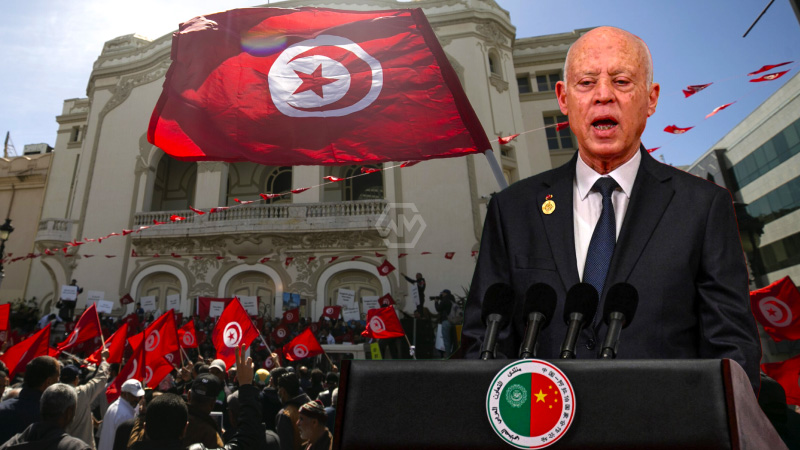- Kais Saied re-elected with 90.7% of the vote following a turbulent first term.
- Calls for a “cultural revolution” to address unemployment, terrorism, and corruption.
- Criticism over restrictions on press freedom during his second-term inauguration.
Kais Saied was inaugurated for his second term as Tunisia’s president after a decisive electoral victory. During his first term, Saied suspended the parliament, reshaped Tunisia’s constitution, and launched a severe crackdown on political opponents.
His agenda for the next term includes addressing the nation’s economic challenges by targeting corruption and improving opportunities for ordinary Tunisians, framed within his call for a “cultural revolution.”
Kais Saied Begins Second Term as Tunisia’s Leader Amidst Political Tensions
Despite his promises of reform, concerns have arisen over Saied’s authoritarian tendencies, particularly regarding freedom of speech and press. Many journalists were blocked from covering the inauguration, sparking criticism from the National Syndicate of Tunisian Journalists. Saied’s confrontational stance against “foreign-backed traitors” and “counter-revolutionary forces” has stirred both national and international attention, as Tunisia faces uncertain political and economic futures.
Saied’s first term was marked by significant political upheaval, including the suspension of Tunisia’s parliament and the rewriting of the nation’s constitution, which drew both support and criticism. His aggressive approach to governance has left many of his critics behind bars, accused of undermining the state. The president has repeatedly denounced what he calls “foreign interference” and vowed to restore Tunisia’s sovereignty by eliminating “counter-revolutionary” forces.
Despite his rhetoric of reform, Saied’s second term has already raised concerns regarding Tunisia‘s democratic freedoms. Journalists were barred from covering his inauguration, drawing condemnation from the National Syndicate of Tunisian Journalists. This incident reflects a growing pattern of restrictions on the press and political dissent during his presidency, casting doubts on his commitment to maintaining a free and open society.
As Tunisia’s economic crisis deepens, Saied has promised to fight corruption and stabilize the country’s finances. However, his reliance on authoritarian tactics and his harsh rhetoric towards critics pose significant challenges. While he has retained considerable public support, the president’s ability to address Tunisia’s underlying economic and social issues will determine the success of his second term.
Kais Saied’s second term sets the stage for either significant reform or further political polarization. How he balances his vision for Tunisia with preserving democratic freedoms will shape the country’s future.
“The aim is to build a country where everyone can live in dignity,” said Saied, outlining his vision for a Tunisia free from corruption and foreign interference.



